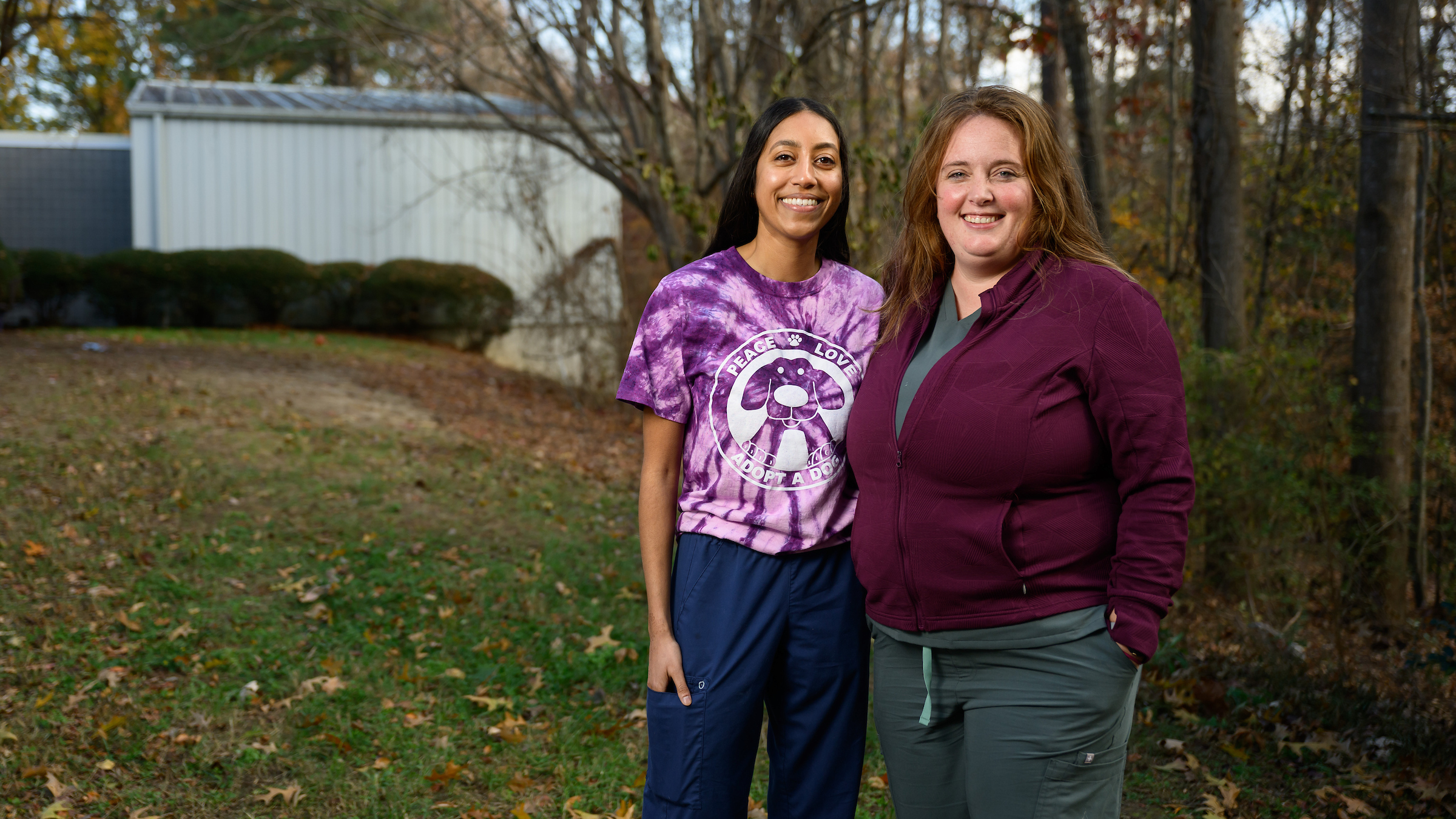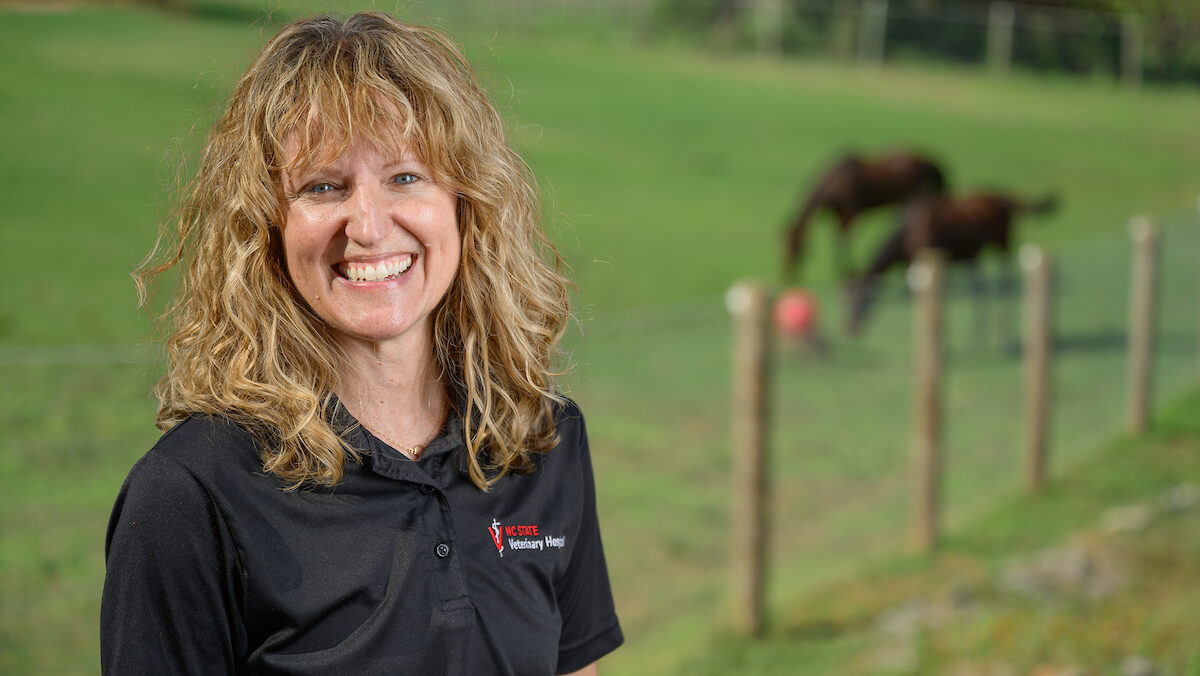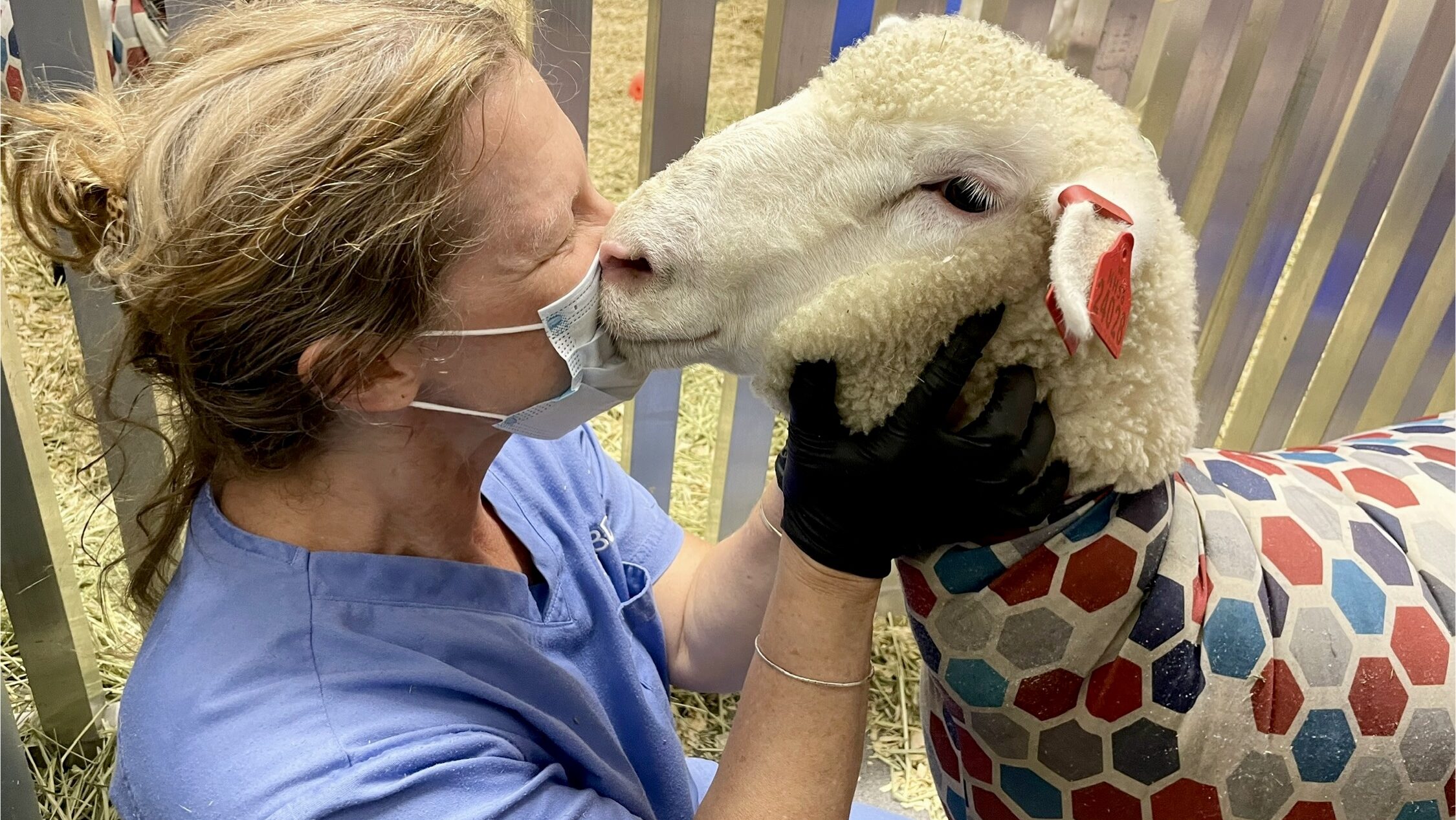For Georgia Aquarium Veterinarian, NC State Turned the Tide
When treating sick sand dollars or diagnosing a diabetic sea otter, Georgia Aquarium’s Dr. Gregory Scott feels waves of gratitude for the College of Veterinary Medicine’s DVM program and zoological medicine residency.
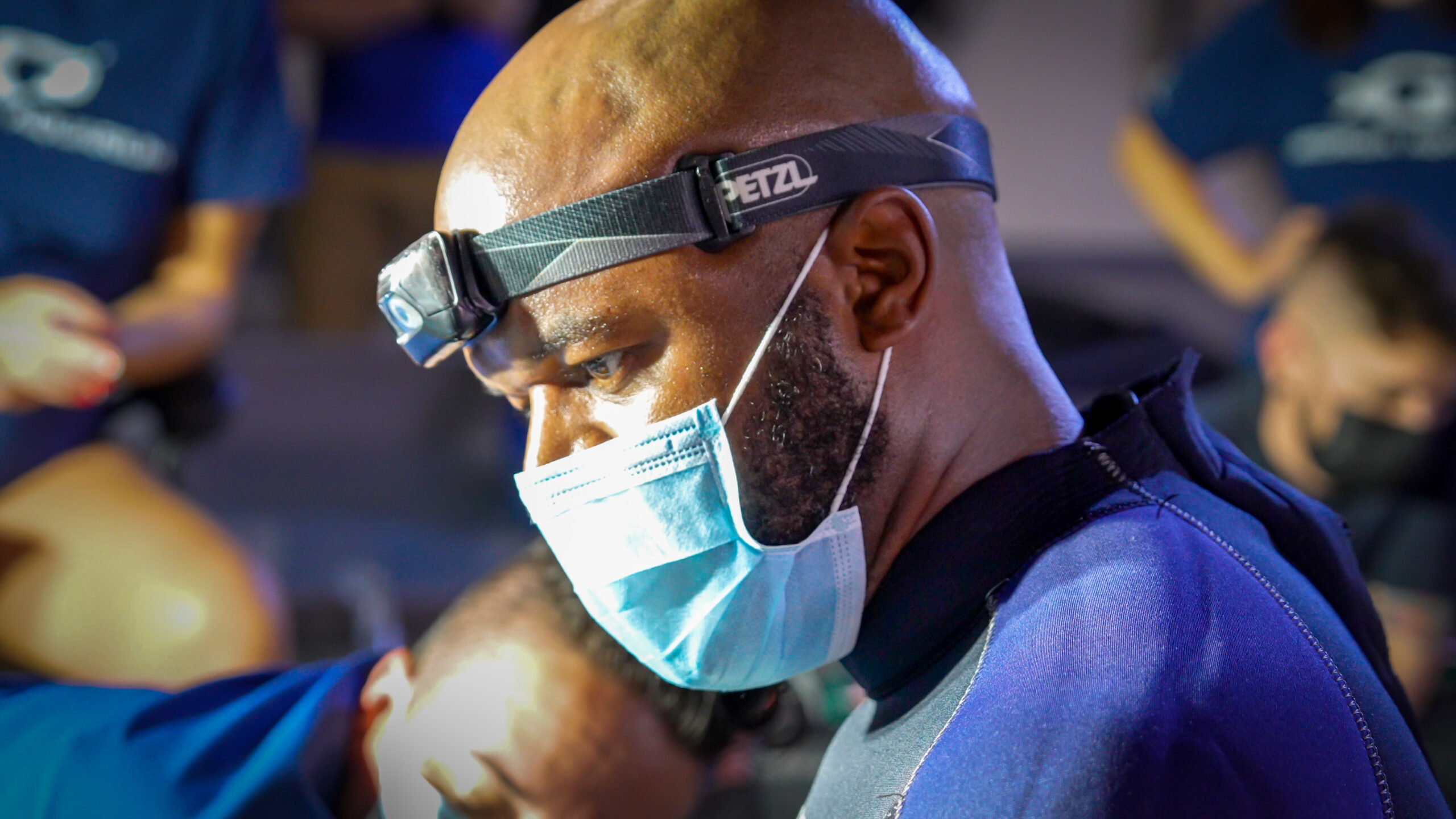
Dr. Gregory Scott knew from a young age that he wanted to be a veterinarian, but the fish were a surprise.
In fact, much of the NC State College of Veterinary Medicine double-alum’s career has been serendipitous, driven by his hard work and opportune encounters with key mentors.
For Scott to reach his current position as a senior associate veterinarian at Atlanta’s Georgia Aquarium, he first had to talk himself back into pursuing veterinary medicine after abandoning the dream while in college, then meet aquatics professor Dr. Greg Lewbart while a DVM student at NC State and then complete competitive training programs while building the formidable skill set needed to care for thousands of animals at the largest aquarium in the United States.
To this day, Scott finds that lessons he learned as part of NC State’s DVM Class of 2012 and zoological medicine residency Class of 2020 reemerge in new and unexpected ways as he cares for common and endangered fish, reptiles, invertebrates, birds and marine mammals.
“Things happen a lot that make me realize, ‘This is my NC State training unfolding before my eyes and helping me save this animal,’” Scott says. “The things that I was able to do there have really enabled me to do my job and have my career — and sometimes impress some people, who go, ‘Where did you learn that?’ And I say, ‘Poking my head into different rooms at NC State.’”
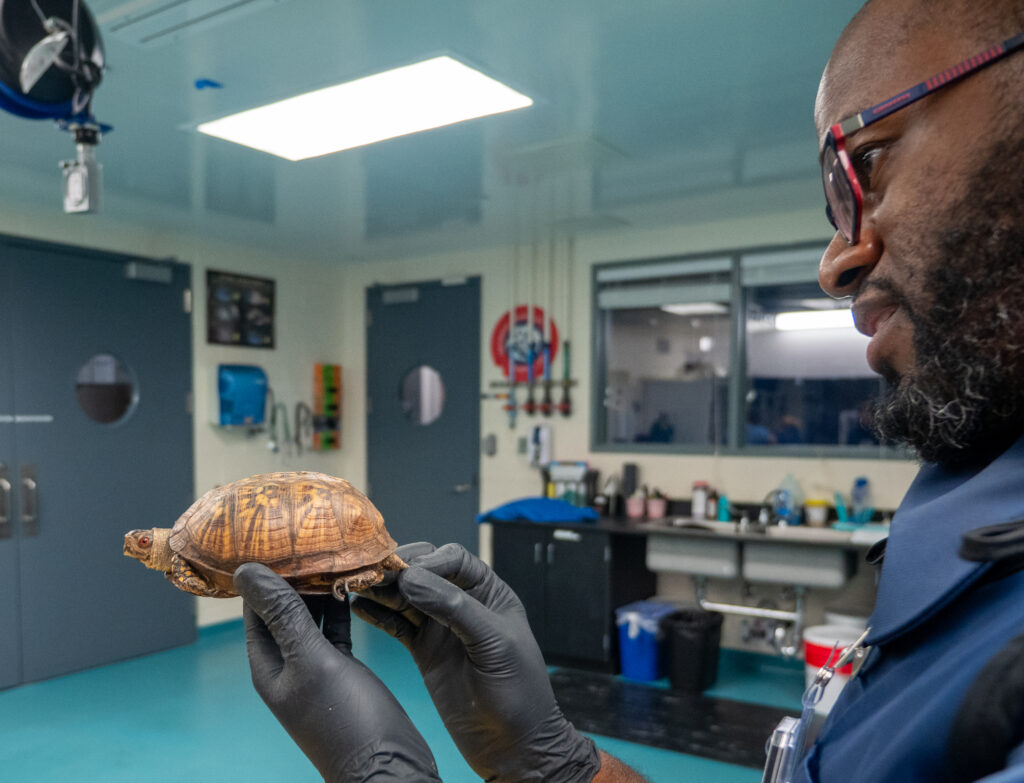
A Sea Change
Scott grew up in Durham and often visited the NC State College of Veterinary Medicine with his mother, a single parent who wholeheartedly encouraged her young son’s interest in veterinary medicine.
“We couldn’t do a whole bunch of things, but we could drive 20 minutes down I-40 and go to the vet school,” he says.
Scott’s mother enrolled him in grade-school-level programs at the college to fuel his passion. She also helped connect him with Black male veterinarians across North Carolina, including Dr. Donald Fuller in Caswell County and Dr. Leland McLaughlin in Charlotte, so Scott could see people who looked like him working in his dream job. Bureau of Labor Statistics data from 2024 shows only 1.2% of the nation’s veterinarians are Black.
Scott set aside his veterinary aspirations in college, intimidated by the rigorous training requirements, and instead pursued a bachelor’s in biopsychology at Tufts University and a master’s in mass communications and media studies at Howard University. But once he felt the call to return to his childhood goals as he finished his master’s degree in 2007, his mentors were waiting to help him see it through.
“That connection was valuable for me to continue this new, life-changing decision that I made to go to vet school and make sure that I didn’t waver on that,” he says. “I don’t know if it would have lasted without them.”
Scott knew he wanted to be a zoo vet, and NC State’s zoological medicine focus area offered unique training opportunities in a location close to Scott’s support system. And by then, Scott had learned to trust his gut.
He started at NC State in 2008 and quickly met faculty mentors in zoological and aquatic animal medicine, including Lewbart, Dr. Craig Harms, Dr. Michael Stoskopf and Dr. Suzanne Kennedy-Stoskopf. His connection with Lewbart, which started with a joke over their shared first names, proved to be pivotal.
“I wasn’t really thinking about doing fish, but he was doing fish,” Scott says. “And then, slowly but surely, I found that aquatics became my foundation within zoo med.”
At NC State, Scott completed fish- and wildlife-focused clinical rotations and fish, invertebrate and reptile medicine selectives. He served in executive positions on the Turtle Rescue Team, the Invertebrate Club and the Wildlife, Avian, Aquatic and Zoological Medicine organization. He even spent two summers researching improvements in fish anesthesia with anesthesiologist and current associate dean Dr. Lysa Posner through the Veterinary Scholars Program.
After he graduated, Scott completed exotic- and aquatic-focused internships at the University of Pennsylvania, the National Marine Mammal Foundation and at SeaWorld San Diego. He held various positions at aquariums and animal hospitals in California before realizing that completing a residency would widen his pool of career opportunities.
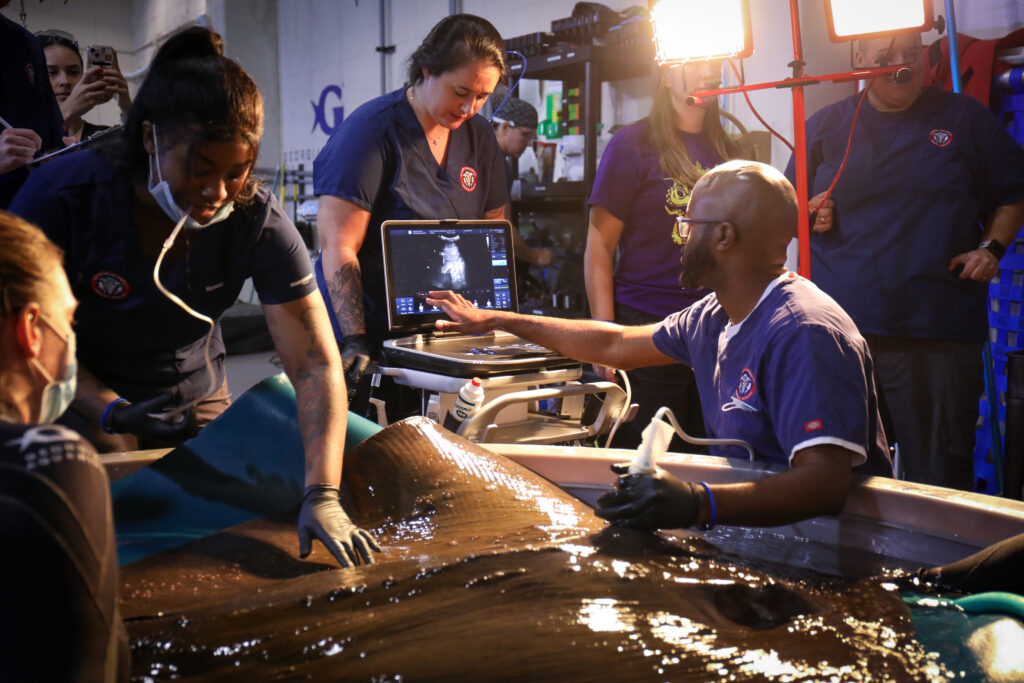
That realization led him back to NC State, where he started an aquatics-focused zoological medicine residency program — one of few in the country — in 2017. His mentors and veterinary community welcomed him back with open arms.
“Part of the reason I went back to NC State was because it wasn’t just about the medicine, but about the people,” Scott says. “In the key moments of both my life and my career, they’ve still shown up.”
After completing his three-year residency, Scott returned to California to care for the aquatic and terrestrial animals at Six Flags Discovery Kingdom. He stayed there for nearly two years until a position opened at Georgia Aquarium in 2022.
‘How Fortunate I Was’
Animals from across the globe call Georgia Aquarium’s habitats, which encompass over 11 million gallons of water, home. Scott serves multiple species of animals with distinct physiologies, needs and health statuses multiple times a day, every workday, and rises to the challenge with a smile.
It’s thanks to NC State that he can handle it all, he says.
In late 2024, another Georgia Aquarium veterinarian was stumped by a sick turtle whose prognosis was grim. That clinician consulted Scott, who rattled off treatment options he remembered from his time on NC State’s Turtle Rescue Team.
The two decided to try a blood transfusion from a donor turtle. Scott guided the other veterinarian through the process, including placing an IV catheter in a difficult spot. The sick turtle rallied with treatment and is now thriving, Scott says.
“It was advanced turtle medicine, but I was doing it when I was a second- and third-year vet student,” he says. “It was amazing to think that that experience at NC State was then helping my coworker do something they weren’t as familiar with. I texted Dr. Lewbart, and I said, ‘Everything that I did was something I learned in Turtle Team.’
“As a student, I didn’t really realize what I was being afforded at the time,” he continues. “This was one of those moments where I realized how incredibly valuable and helpful that was, and how fortunate I was to get that instruction, teaching and mentorship at such an early stage in my career.”
Lewbart says it is his privilege and honor to know Scott, who made an immediate impression on him back in 2008 and has continued to amaze.
“Greg is of the highest moral and ethical character and I have always been impressed by his maturity, easy-going manner, keen interpersonal skills, and exceptional life balance,” Lewbart says. “He is a gem of a human being and I’m proud to have him as a colleague, and most importantly, as a good friend.”
The importance of paying Lewbart and others’ mentorship forward isn’t lost on Scott. He works closely with the aquarium’s residents and externs through his role as the facility’s clinical residency coordinator.
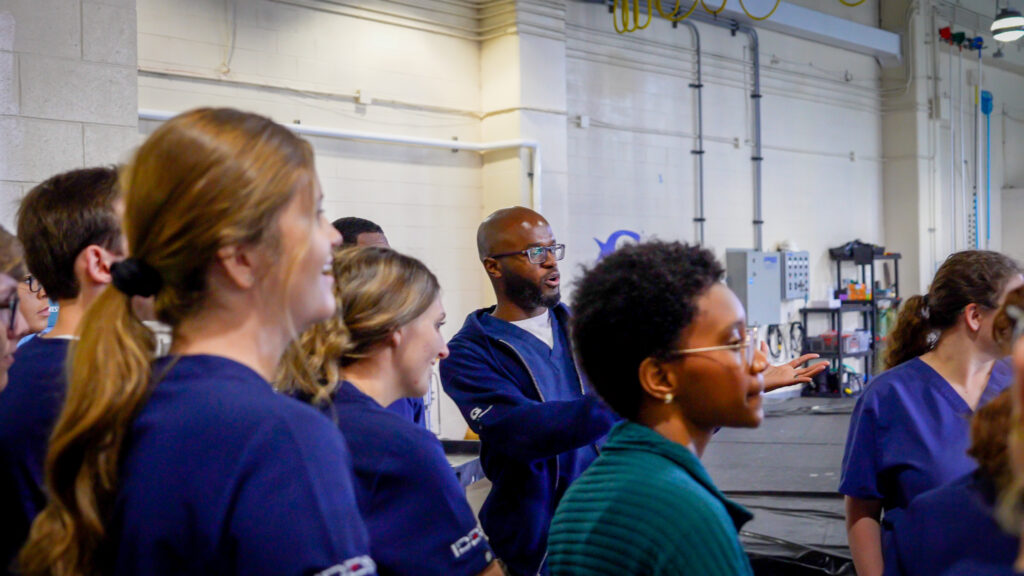
Scott is also an enthusiastic host of Auburn University’s summer Veterinary Intensive Program, where undergrads from backgrounds underrepresented in veterinary medicine learn more about the field through assistance from partner organizations like Georgia Aquarium. It’s a privilege, he says, to motivate students at a critical age where he almost abandoned his veterinary hopes.
“There aren’t a lot of Black male aquarium veterinarians — to my knowledge, I’m one of two,” Scott says. “I recognize that I occupy not only an important space as a vet, but also for my demographic. Especially when you are a minority, making those connections is important to help somebody else along their journey figure out how their interest really fits with who they are. Somewhere out there, I could be that person for that someone.”
- Categories:
